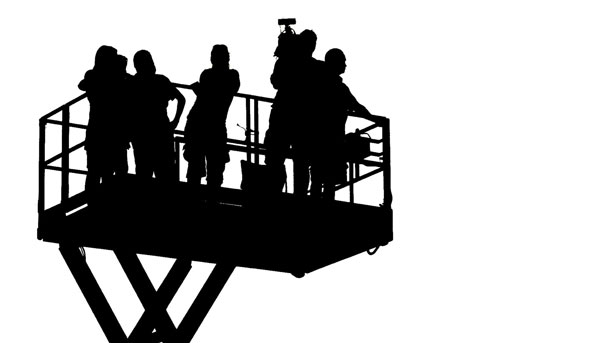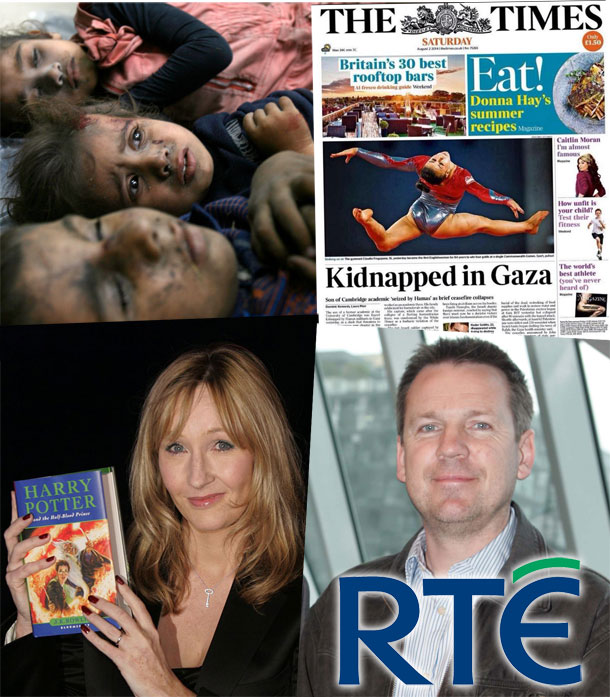1 September 2014 Edition
The myth of media balance

The news you consume this week will be profoundly negative, focusing on personal stories and events that emphasise disorder and discord rather than provide a more rounded analysis of the factors in the actual event
HADAR GOLDIN was killed on 1 August. He was an Israeli soldier, reported as “kidnapped” across the world’s news media in Rafah, Gaza. In the hours afterwards, amid claims that Hamas had broken a tentative ceasefire with Israel, 107 Palestinians were killed in Israeli rocket and shelling attacks. I know few of the names of these 107.
I do know Hadar was recently engaged, that US President Barrack Obama demanded his release, that the London Times of 2 August put the story on the front page because of a reported connection of Goldin to England. From obituary reports carried across the world, I know personal details of Hadar’s life before his tragic end.
What we don’t know is if Hadar was killed by gunfire, a Hamas ‘suicide bomber’, or was one of countless victims of the Israeli military’s ‘Hannibal Doctrine’, which sanctions saturation shelling of places where captured soldiers are suspected of being held, regardless of the humanitarian costs to anyone, soldiers or civilians; men, women or children.
How the deaths and bombings were reported speaks to the limitations and flaws in news media today.
The news is too often personalised in dramatic stories, the truth of which is suspect. Online social media is amplifying this.
The news you consume this week will be profoundly negative, focusing on personal stories and events that emphasise disorder and discord rather than provide a more rounded analysis of the factors in the actual event.
On 18 September, Scotland votes on independence from Britain. It is a complex issue but voters’ personal deliberations have been in the context of a media prioritising the profoundly negative or silly aspects of the Scottish independence debate.
Already this year so-called ‘news’ on the referendum has told us that Scotland will “lose BBC” if it goes independent (February 2014). The same month there was a much-publicised threat from the Standard Life financial services group that it might “quit an independent Scotland”. The firm has been in Scotland for 189 years and employs 5,000 people.
In April, Standard & Poor’s claimed that the Scottish banking system “risks Iceland-style meltdown”. You remember Standard & Poor’s? Like many other credit rating agencies and ‘experts’, they didn’t see the financial crash coming but were unseemingly quick to downgrade Irish Government debt and now their pronouncements get media coverage way beyond their record of credibility.

“Don’t hate me because I want to vote No,” was a Sunday Times headline in June, claiming that: “Nationalists trolls are trying to stifle debate over the true cost of Scottish Independence.” The previous day’s London Times had a similar article headlined “Scottish artists ‘afraid to admit they voting No’.”
Harry Potter author J.K. Rowling’s £1million donation to the ‘No’ campaign was headlined by the Sunday Times as “J. K. Rowling and the Death Eaters” with a strapline telling us: “Celebrities are lining up to slug it out over Scottish independence.” Earlier that week the Guardian had helpfully given a whole page to the “Celebrity Yes or No debate”.
There has also been considerable coverage of Barack Obama’s support for a No vote and last month’s intervention by Australian Prime Minister Tony Abbott, hailed by the Daily Mail’s Melanie Phillips as “an Oxford-educated devotee of the late Lady Thatcher, a true conservative”.
The Mail also extrapolated comments by the Pope on Yugoslavia, Catalonia and Scotland that “All division worries me” into a blazing headline “Now the Pope backs Scottish No vote” when he also said: “There will be cases that are just, but the secession of a nation without a history of enforced unity must be taken very carefully and analysed case by case.”
In Ireland we face up to six referendums next year, including votes on reducing the voting age, the age barrier for standing as a presidential candidate, and same-sex marriage.
The Broadcasting Authority of Ireland last month adjudicated that RTÉ’s Derek Mooney had breached its code on objectivity and impartiality by making statements supporting same-sex marriage and having guests who supported same-sex marriage without including someone who opposed it.
The problems with media balance do not begin with light entertainment radio. There is an absence of balance in all of our news media to its core and the BAI complaint procedures become laughable in that context.
What hope then for our coming referendum coverage?




